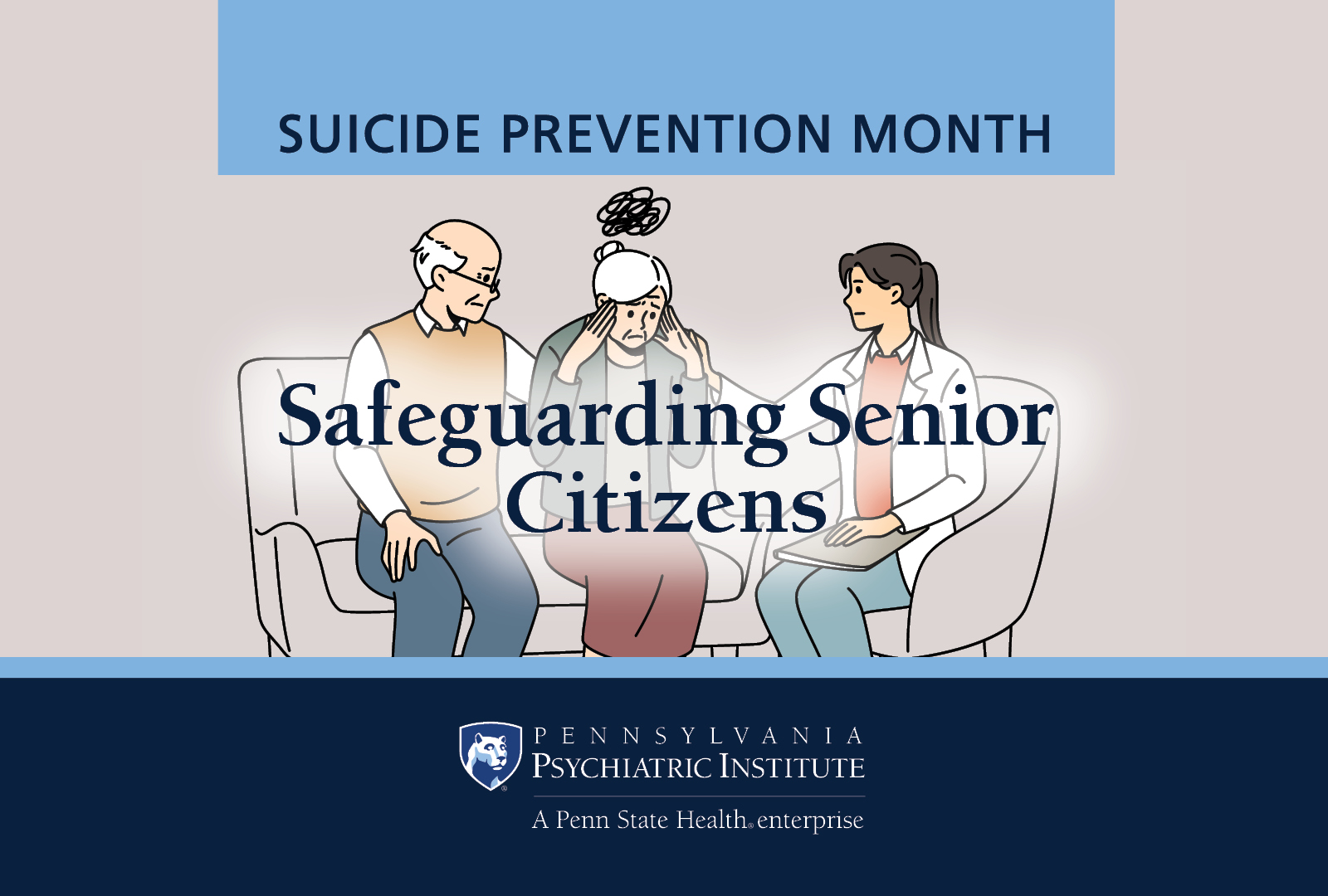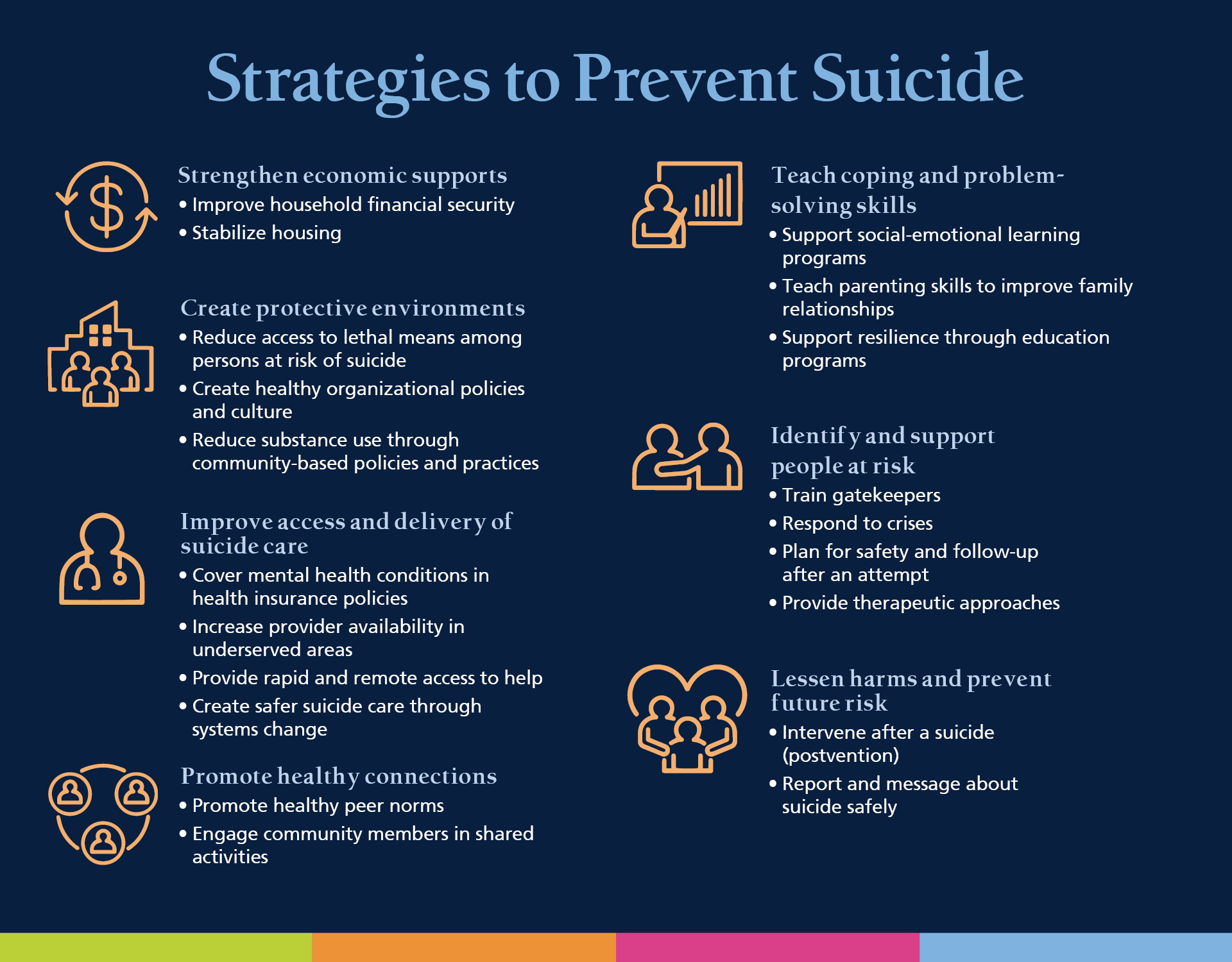Suicide rates among senior citizens are a pressing concern for mental health professionals and the community in general. According to the CDC, adults aged 75 and older have one of the highest suicide rates. As the “Baby Boomer” generation, our most prominent living adult generation, continues to transition into their senior years, the Central Pa. community will need to contend with the growing threat of suicide in the senior community.
A Rising Concern in Pennsylvania
According to the National Council on Aging, older adults are “especially vulnerable to suicide for a number of reasons.”
- Although older adults represent only 12% of the population, they account for roughly 18% of suicide cases.
- In 2020, out of the close to 46,000 suicides in the U.S., 9,137 involved individuals aged 65 and older.
- Compared to younger individuals, older adults typically approach suicide with greater deliberation and often choose more fatal methods.
- For every four older adults who attempt suicide, one will tragically succumb. In contrast, the rate for youths is 1 in 200. Moreover, seniors who survive a suicide attempt often face more significant challenges in recovering from its repercussions.
- Men aged 65 and above experience the most pronounced suicide rates compared to other age groups.
With a surge in the aging population, especially among the “Baby Boomer” generation, concerns are escalating about the increasing rates of suicide among older adults in Pennsylvania. This generation, generally considered born between 1945 and 1964, accounts for almost 27% of the state’s population, according to the U.S. Census.
Understanding the Risks
Social isolation, pain, physical illness and functional impairment play a significant role in the elevated suicide risks among older adults. The increasing rates of divorce among those aged 50 and above, coupled with many seniors living without close interpersonal relationships, further magnifies the risk. Substance abuse, alcohol use and chronic physical pain also contribute to this worrying trend.
Further concerns arise from prevalent health conditions, including chronic musculoskeletal problems, obesity, diabetes and high blood pressure. These conditions, common among older individuals, hamper daily activities and raise suicide risks.
Proactive Strategies for Central Pennsylvania
Recognizing the pivotal role of mental health professionals in suicide prevention, there is a pressing need to:
- Organize regular training programs for primary care providers in Central Pa. to bolster their skills in identifying senior patients at risk
- Drive initiatives to inform the community about the challenges faced by seniors. Advocate for understanding and the establishment of a nurturing environment
- Foster the creation of support groups for senior citizens to counter feelings of isolation, offering a space for shared experiences and seeking assistance
- Dedicate more resources to mental health services tailored for seniors. This should encompass counseling, therapy and medication where needed
The pressing issue of suicide among senior citizens necessitates swift and collective action. Central Pa. with its strong community engagement, can lead the way by placing the mental well-being of its senior residents at the forefront. Through proactive initiatives and a shared sense of responsibility, we can ensure that our elderly community thrives and enjoys a meaningful life.
Residents of Pennsylvania have a streamlined method to access behavioral and mental health crisis support. By dialing 988, individuals are directly connected to the National Suicide Prevention Lifeline. Callers are promptly connected to a local 988 call center based on their area code, ensuring immediate assistance from trained professionals ready to provide support. Additionally, the system offers dedicated options for veterans or Spanish-speaking individuals: Option 1 directs callers to the Veterans Crisis Line, while Option 2 connects to a Spanish-speaking professional.
People who are deaf, hard of hearing or have hearing loss can access 988 support using the options below:
- For deaf or hard of hearing ASL users, call 988 Videophone
- Online chat
- 988 Text – Send any message to 988 to start a text conversation
- For teletypewriter (TTY) Users: Use your preferred relay service or dial 711 then 988
How PPI is Helping Senior Citizens
At PPI, we understand the distinct challenges mature adults face with mental health, we offer specialized programs tailored to their needs. Age can compound conditions like dementia, anxiety and depression, often overlooked due to other physical symptoms. Call our admissions department at 1 (866) 746-2496 to learn more.


